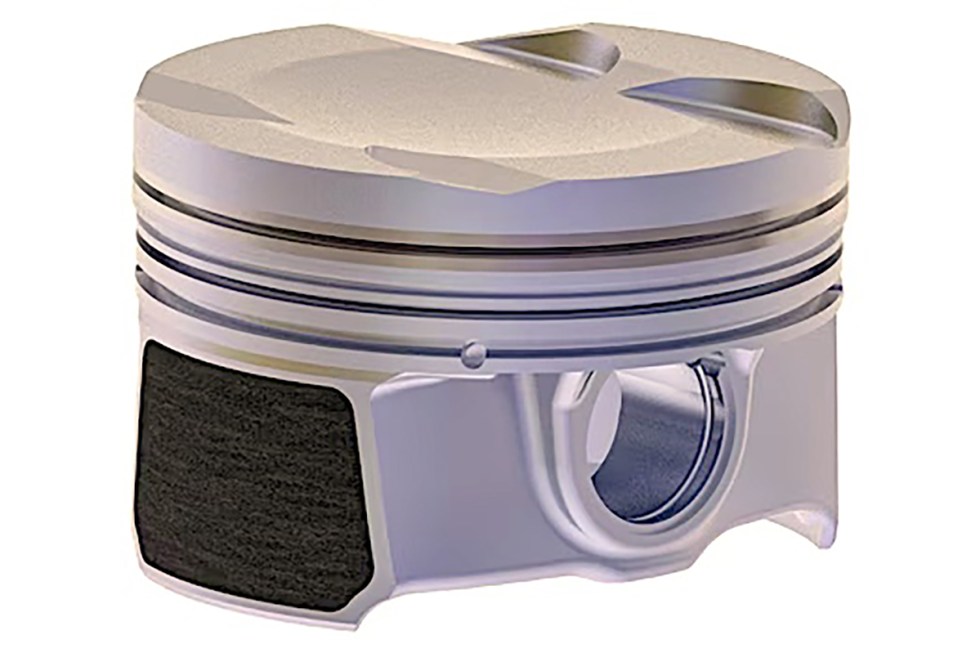
Petrol EA211 Evo 2 TSI cements unexpected VW ICE future
Volkswagen has just flown in the face of its famous tenet of becoming an electric-only car brand by introducing an all-new petrol TSI engine. While it indeed continues to ramp up its EV plans, this new EA211 Evo 2 TSI four internal combustion petrol engine certainly goes against the grain of Wolfsburg’s all-electric promise.
The new engine already revealed in the new Passat and Tiguan over the past fortnight, comes amid a recent downturn in global demand for EVs. Not only does the market in general appear to be cooling on electric cars, but much of the developing world is not ready for EVs. Non-existent national power networks cannot sustain them, while others, like South Africa, are challenged to supply electric power.

EA211 Evo 2 TSI a petrol change of heart
Volkswagen was one of several carmakers to commit to an all-electric motoring future. Several countries and states have also legislated EV-only sales in a surprisingly short-term future. So VW’s move to launch two new petrol cars powered by this new engine as both straight ICE and mild hybrids in the past month, suggests a plausible change of heart.
The Volkswagen Group of course still sells significantly more combustion cars than EVs. The company now suggests that this now Euro 7 emissions compliant EA211 Evo 2 TSI four-cylinder engine family will continue to form the backbone of its revised biggest-selling modular transverse matrix range of cars, starting with the new Passat and Tiguan.
To that end, this new EA211 Evo 2 TSI petrol engine generation significantly meets the most stringent EU7 and US emission standards as it reduces petrol engine nitrogen oxide emissions to a safe levels in city traffic. Intrigued, Auto takes a look under the bonnet of the new Volkswagen Tiguan and Passat 1.5 TSI.

Miller Cycle based Turbo Stratified process
Volkswagen’s original 2017 96 kW. 1.5 four-cylinder TSI engine was spurned by its dieselgate crisis. The Miller Cycle based Turbo Stratified process featured high compression and early intake valve closing supplemented by variable turbine geometry exhaust gas turbocharging. A litre TSI three-cylinder followed focused on further reducing pollutants across its vast modular transverse matrix platform vehicle rage.
The EA211 engine family was developed from the outset to deliver an ICE solution. As well as modular electrification from a 48V mild hybrid to a plug-in hybrid. A global engine, it uses a standardised technical specification to reduce development variables, whatever the vehicle it is used in. EA211 was also conceived to enable the use of standard software modules across the board.
Combined with its variable turbine geometry turbocharger, this latest TSI Evo 2 engine’s 350 bar injection pressure combustion process now allows for Lambda 1 operation across its entire engine map. It also covers a power range from 66 to 130 kW, expandable to up to 200 kW with electric assistance in top plug-in hybrid models.

New ACT plus cylinder deactivation
TSI Evo 2 introduces ACTplus cylinder deactivation and an optimised Miller Cycle. It shuts its central two cylinders down. At the same time. it alter its Miller Cycle to close the active cylinder inlet valves even earlier. Further gains come via optimised combustion efficiency. Chambers are cooled by pistons with cast-in cooling channels, and friction resistant plasma coated bores.
The ACT-Plus deactivation system uses a twin camshaft to shut the central cylinder valves down. An actuator shifts the central cylinder cam lobes away from their rocker arms. In other words, the camshaft continues to rotate, but it no longer opens the two central cylinders’ valves.
Limiting two-cylinder operation to 3,200 rpm allows faster valve speeds to optimise the Miller Cycle effect and limit fuel consumption. Improved two cylinder deactivation furthermore ensures invisible switching and smooth running. The central cylinders are reactivated and the engine returns to a conventional Miller Cycle on harder acceleration.

EA211 Evo 2 TSI is EU7 emissions certified
TSI Evo 2 also brings a substantial increase in compression ratio from 10.5 to 12.0:1. To significantly improve consumption efficiency to 11g/kW, without the risk of knocking. And a cold start-friendly three-way catalytic converter mounted close to the engine. It ensures efficient Lambda 1 NO x and CO₂ exhaust emissions reductions in real world driving.
Volkswagen’s EA 211 Evo 2 engine is also designed to be ready to operate with basic fossil fuels, renewable fuels, and blends of the two. And it will significantly build on the over five million EA 211 engines sold. It is already among VW’s most successful-ever engine families.
So, the combustion engine is far from dead. Despite its focus on electric cars, and an all-EV future promise starting with the new Passat and Tiguan, this 1.5 TSI Evo 2 engine proves that Volkswagen is nowhere near finished with internal combustion engines. Which is great news for motorists fearing being forced into electric driving against their better judgement. – Michele Lupini


